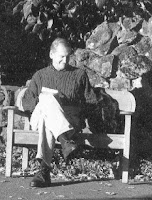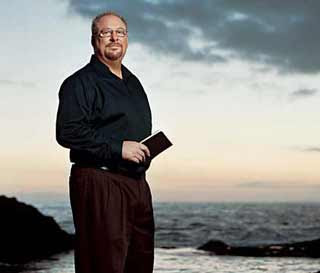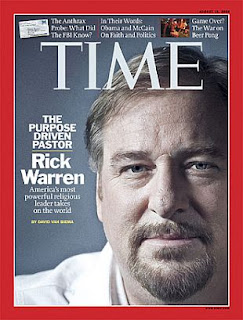Missionary: Evangelist and Herald
Channing Moore WilliamsA homily,
Peter Menkin, Obl Cam OSBChurch of Our Saviour (Episcopal)
Mill Valley, CA USA
Wednesday Eucharist, December 2, 2009
Lesser Feasts and Fasts, 1994
Acts 1: 1-9
Luke 10: 1-9
Psalm 96: 1-7
In the name of the Father, and the Son, and the Holy Spirit.The prayer today offers, “…that your Church may proclaim the unsearchable riches of our Saviour Jesus Christ, who lives and reigns with you and the Holy Spirit, one God, for ever and ever.”
Let us speak of Missionaries today, in specific Channing Moore Williams of the 19th Century. We celebrate this man today. Let us also celebrate missionaries.
Jesus instructed his apostles to make disciples. The Bishop of China and Japan, based in Yode (Tokyo) wanted just that in his work, to make disciples. Most of his effective work was done in Japan, where he ended with just less than 1,000 adherents. That is as many as were the original Christians in the earliest days of Christendom. That makes sense, for beginnings are often small, and it does not take numbers to build a Church.
Channing wrote this in his report of his activities as a missionary in 1889:
Our Church must settle what she is to take in the great work of bringing this people of this interesting country to the knowledge of and faith in the Lord Jesus; and what she determines to do must be done without delay. She cannot 
think that she has, in any sense, come up to the measure of her responsibility. For the truth is the mission has been sadly undermanned from its commencement to the present; and the fact is especially apparent at this time when, by the new treaties, the whole country is to be thrown open to our missionaries to travel and reside where they may please, without restrictions of any kind.
--C.M. Williams, Missionary Bishop of Yedo (now Tokyo), Japan, August 8, 1889
From the book, “Documents of Witness”
Here are some biographical notes about Channing Moore Williams:
• He stayed in Japan for nearly twenty years, assisting his successor and helping to establish new congregations…resigned his jurisdiction in 1889 for health reasons.
• He believed in a slow and careful approach, waiting nine years before baptizing his first convert.
• That same year, Williams who began his missionary work in 1829, was consecrated Bishop for the church’s mission in China and Japan.
• He founded the divinity school which became Saint Paul’s (Rikkyo) University, still one of Japan’s best known colleges.
• In 1887, Williams helped bring together the English and American missions to form the Nippon Seikokai, the Holy Catholic Church in Japan.
This neat amount of information comes from a wonderful book I highly recommend—“Celebrating the Saints,” by Christopher L. Webber. It has a devotional reading for every Saints’ Days.
Let us pray a moment and take some silence for Channing Moore Williams on this the day we celebrate him:
Almighty and everliving God we thank you for your servant Channing Moore Williams.(Moment of silence here.)
Missionary work has changed in 150 years in our Church. No longer is it colonialist, no longer does it attempt to change people to the supposed better ways of our own culture. The missionary takes the people who they are, where they are, and settles with them in their indigenous culture.
Yet much is unchanging in missionary work, for it is based in tradition and in the Bible.
Bishops and clergy today agree: “The challenge this church faces today is like that of the last 150 years - how to be faithful, poor in spirit, and righteous in a culture that doesn't always share those values.
“[The missionary’s] ability to transform the society around [him] toward that vision of the heavenly kingdom lies in [his] ability to speak to this context, to live into those three selves of the 19th century missionaries (who learned them from the apostle Paul). This indigenizing church needs to speak good news in pachinko parlors, in anime, in the anonymity of crowded cities.
“This church has the ability to do that in this generation, as it has in generations past. [His] witness can teach others as well -- particularly the churches of Western Europe and North America who also labor in secular and consumerist cultures. What will [he] teach us? How will [he] help to propagate the gospel from seeds grown in the good earth of Nippon?”
So says Presiding Bishop The Most Reverend Katherine Jefferts Shori of
the Episcopal Church.
Bishops and lay people, clergy bring fresh water, schools, medical help, and hope as they bring the message of Jesus Christ. They do this work because they believe as Christians it is an obligation of their faith and work to bring the Kingdom of God. As is said in Acts:
…when the Holy Spirit has come upon you, and you will be my witnesses in Jerusalem, in all Judea and Samaria, and to the ends of the earth…
Remember how in Luke 10 the Lord sends out disciples. The words of the Bible read:
After this the Lord appointed seventy others and sent them on ahead of him in pairs to every town and place where he himself intended to go. He said to them, “The harvest is plentiful, but the laborers are few; therefore ask the Lord of the harvest to send out laborers into the harvest…”
Channing Moore Williams did as Jesus Christ charged. He went out into the towns and places ahead of the Lord, into a foreign land where he followed the rest of the dictates.
Whatever house you enter, first say, “Peace be on this house!” And if anyone is there who shares in peace, your peace will rest on that person, but if not, it will return to you. Remain in the same house, eating and drinking whatever they provide, for the laborer deserves to be paid. Do not move about from house to house. Whenever you enter a town and its people welcome you, eat what is set before you, cure the sick who are there, and say to them, “The kingdom of God has come near to you.”
As Christians, we believe in the good news of Jesus Christ. We believe in offering and spreading this good news to all the world. We believe in the good works of the missionary. We work with people in foreign lands, we bring them the good news of Jesus Christ. In so doing, we “…make a joyful noise to the Lord, all/the earth; / break forth into joyous song and sing praises…”
Each act of mission is a new act.
O sing to the Lord a new song,
For he has done marvelous things.
His right hand and his holy arm
Have gotten him the victory.
The Lord has made known his victory;
He has revealed his vindications in
The sight of the nations.
His servant Channing Moore Williams who we remember on this day met the world, and today we meet the world still. Perhaps in different ways, more to the bringing to indigenous peoples a gift than a change in their culture. We think this new way of approach brings the kingdom of God more effectively to the greater world, for the era of colonialism is gone.
In review as support of our modern vision of missionary work: A definition is this: "one who is sent to witness across cultures." to form a viable indigenous church-planting movement." Recognizing justice as being at the heart of the Gospels.
He has remember his steadfast love
And faithfulness
To the house of Israel.
All the ends of the earth have seen
The victory of our God.
Amen.Image: Date: 1890 circa 5 years
Original Format: Carte de Visite
Photographer: G. W. Pach
Audio of Homily is here:






